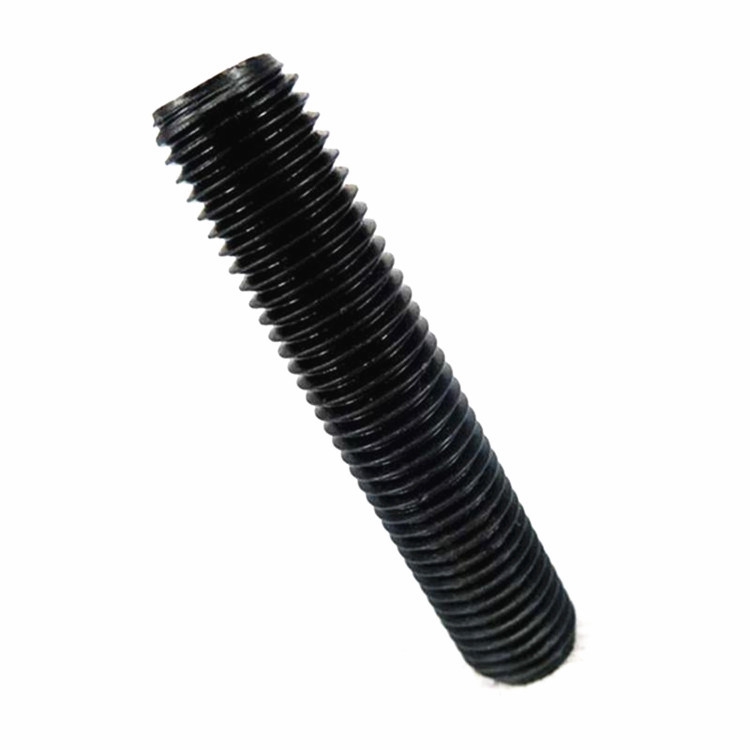oem precision shoulder bolts
Nov . 16, 2024 21:22 Back to list
oem precision shoulder bolts
Understanding OEM Precision Shoulder Bolts
When it comes to automotive and machinery manufacturing, the importance of precision components cannot be overstated. Among these critical components are OEM (Original Equipment Manufacturer) precision shoulder bolts. These bolts play a pivotal role in ensuring that machinery operates smoothly and efficiently, making them an essential aspect of both production and maintenance processes.
What are OEM Precision Shoulder Bolts?
OEM precision shoulder bolts are specially designed fasteners that include a cylindrical shoulder between the head and the threaded portion. This shoulder provides a flat surface, allowing for precise alignment and load distribution. The design ensures that the bolt can bear heavy loads while maintaining its structural integrity. These bolts are typically made from high-strength materials such as steel or aluminum, which enhances their durability and performance in demanding applications.
Why are Precision Shoulder Bolts Important?
1. Accuracy and Alignment One of the main advantages of using precision shoulder bolts is their ability to provide accurate alignment in mechanical assemblies. The shoulder allows for the proper positioning of components, which is crucial for the functionality of machinery. Misalignment can lead to increased wear and tear or even catastrophic failure, making precision engineering vital in many industries.
2. Load Distribution Shoulder bolts are designed to carry loads efficiently. The large shoulder surface distributes the load over a wider area, minimizing localized stress that can lead to failure. This property is particularly important in applications where high forces are present, such as in automotive engines and heavy machinery.
3. Versatility OEM precision shoulder bolts are versatile and can be used in a variety of applications, including automotive, aerospace, and industrial machinery. Their design allows them to serve multiple functions—acting not just as fasteners, but also as pivots, spacers, and guides. This versatility reduces the need for multiple types of fasteners, simplifying logistics and inventory management.
4. Quality Assurance Using OEM components ensures that manufacturers and maintenance providers are using parts that meet strict quality standards. OEM precision shoulder bolts undergo rigorous testing and quality control processes, providing assurance that they will perform reliably in their designated applications.
Applications of OEM Precision Shoulder Bolts
oem precision shoulder bolts

OEM precision shoulder bolts are found in a wide range of applications
- Automotive Engineering In vehicles, these bolts are used in various systems, including suspension, steering, and braking. Their precise fit and load-bearing capabilities contribute significantly to vehicle safety and performance. - Aerospace The aviation industry requires components that can withstand extreme conditions, including high speeds and variable temperatures. OEM precision shoulder bolts meet these stringent requirements, ensuring reliability and safety in flight.
- Industrial Machinery In manufacturing settings, precision shoulder bolts are utilized in assembly lines, conveyors, and robotic systems. They facilitate smooth operation and reduce maintenance costs by preventing wear and tear.
Selecting OEM Precision Shoulder Bolts
When selecting precision shoulder bolts, it is essential to consider various factors, including
- Material The choice of material affects the bolt’s strength and durability. Steel is commonly used for its strength, while aluminum is favored for its lightweight properties.
- Size and Threading It is crucial to match the bolt size and thread type to the application requirements. An incorrect size can lead to failure and compromise safety.
- Coatings Depending on the application environment, coatings can provide additional protection against corrosion and wear.
Conclusion
OEM precision shoulder bolts are a cornerstone of modern engineering, providing the reliability and precision required in various high-stakes applications. Their unique design facilitates proper alignment, distributes loads effectively, and offers versatility across industries. By choosing high-quality OEM components, manufacturers can ensure that their machinery operates smoothly, safely, and efficiently. Whether in automotive, aerospace, or industrial settings, these bolts are indispensable in maintaining performance and safety standards.
Latest news
-
Premium Phosphated Drywall Screws Supplier | Durable, Rust-Resistant
NewsAug.27,2025
-
Reliable Wire Bolts Suppliers | Quality Zinc Plated Fasteners
NewsAug.26,2025
-
Wire Bolts Suppliers: Durable & Reliable Fasteners for Every Project
NewsAug.25,2025
-
Premium Cabinet Bolts Supplier | Wholesale & Custom Solutions
NewsAug.24,2025
-
Reliable Axle Nuts Supplier | Quality & Precision Fasteners
NewsAug.23,2025
-
Durable Bolts for Lawn Mower Handle - Top Supplier & Manufacturer
NewsAug.22,2025
